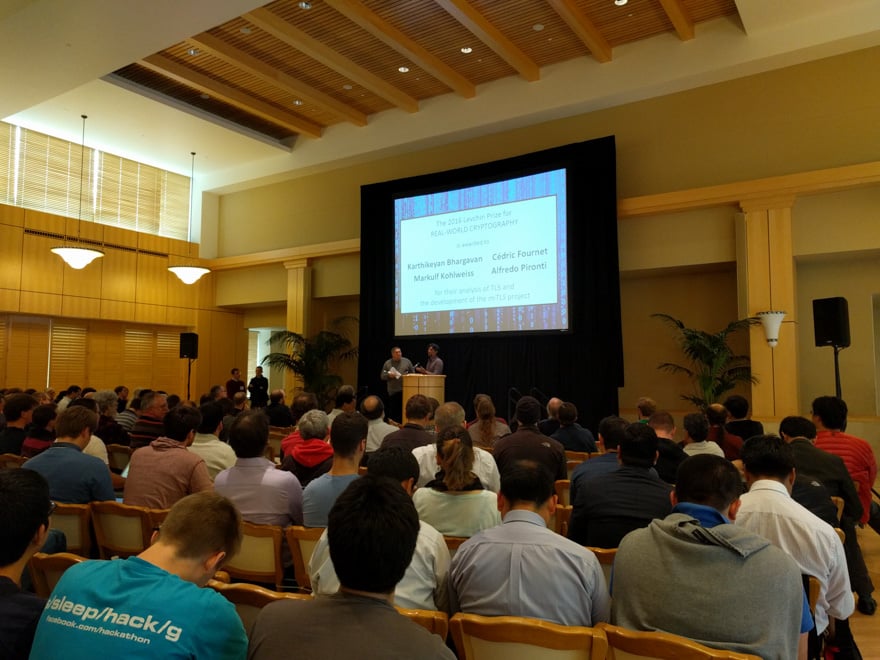The inaugural Levchin Prize for Real World Cryptography was awarded Wednesday at the Real World Cryptography Conference (RWCC), held annually at Stanford. Phillip Rogaway, professor of computer science at UC Davis, as well as the international miTLS research team, each received $10,000 for their work on cryptography.
Co-hosted by the Stanford Cyber Initiative, RWCC 2016 takes place from Jan. 6 to Jan. 8, and features talks ranging from computer security policy to mathematics. This year’s conference has attracted nearly 450 attendees.
Established in 2015 by Max Levchin, co-founder of Paypal and CEO of Affirm, the Levchin prize for Real World Cryptography was created to honor cryptography researchers and bring greater public visibility to this field of research. The awardees are selected by a steering committee composed of researchers from universities worldwide.
“The hope is that the general public benefits from knowing what [cryptography] is — it’s math and software, not magic,” Levchin told The Daily before the event.
Rogaway, who has previously advocated for greater ethical consciousness among computer scientists in papers and interviews, was honored for his work on authenticated and format-preserving encryption.
“Crypto for privacy work is intended to help individuals retain autonomy in a world that fights against it… right now there’s an underinvestment in intellectual work that helps people retain autonomy,” Rogaway said.
The international miTLS team, composed of Karthikeyan Bhargavan, M.S., Ph.D., Cedric Fournet, Ph.D., Markulf Kohlweiss, Ph.D. and Alfredo Pironti, Ph.D., received the prize for the development of miTLS, a reference implementation of the Transport Layer Security (TLS) protocol that provides added security to communications over computer networks.
“We need a way to map theoretical cryptographic results to formal implementations in a more systematic way… I think that will be the major advancement in the next five to 10 years,” Fournet said.
Levchin suggested that computer security would benefit from greater integration of cryptography into high school and undergraduate computer science curricula.
“If I had my way, basic cryptography would be a required class in computer science — that would be an easy, top-down way of [improving computer security]… the people who have this education will be better prepared for the real world,” Levchin said.
Dan Boneh, professor of computer science and electrical engineering at Stanford, who researches computer security and teaches an online course on cryptography, said, “Students should be required to take computer security classes so that when they go out to industry and write code that will be used by billions of people, they know how to write code.”
Stanford offers courses on cryptography to undergraduates, including CS 255: Introduction to Computer Science and the freshman seminar, CS 54N: Great Ideas in Computer Science. Students can also become involved in this field through Stanford’s cybersecurity initiatives, including the Center for International Security and Cooperation and the Center for Internet and Society at Stanford Law School.
“Computer security and cryptography are problems we will have to work on forever. It’s a research area that’s only going to grow. As a research area, as an area of study, it’s fantastic,” Boneh said.
Contact Augustine Chemparathy at ‘agchempa’ at ‘stanford.edu’
